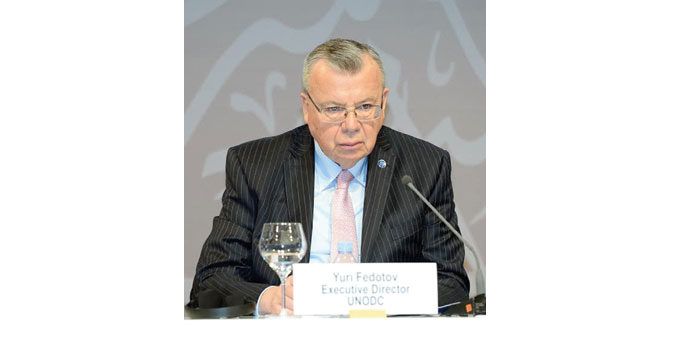The Indian Ocean could become a haven for criminal activity, Yury Fedotov, the executive director of the UN Office on Drugs and Crime (UNODC) told the 13th UN Congress on Crime Prevention and Criminal Justice yesterday.
“Recent studies conducted by the Global Maritime Crime Programme indicates an increase in dhow traffic between known departure points for heroin trafficking and the east coast of Africa and South Asia, with traffickers adopting innovative concealment methods and using several drop-off points to smaller vessels,” he explained calling for more robust responses from the international community.
Comparing the fight against crime on the high seas with that on land, Fedotov underscored it was imperative that the maritime domain was not ignored.
The UNODC has worked with member states and other partners to achieve impressive results in the maritime piracy fight. The four piracy prosecution states, Kenya, Seychelles, Mauritius and Tanzania, for example, have tried 314 suspected pirates in the last four years.
But, Fedotov observed it was now time to take the fight forward against the maritime traffickers. The UNODC was doing this through its new Global Maritime Crime Programme, which is now geared towards taking on transnational organised crime on the high seas.
“While challenges remained with prosecuting narcotics traffickers detected at sea, we will continue to work with coastal states to introduce enabling legislation, in line with international conventions, that will help to improve investigations and strengthen criminal justice responses,” the UNODC top official stated.

Fedotov addressing the meeting yesterday.
